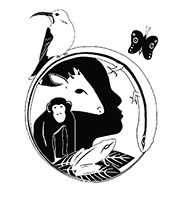Education
 This project aims to promote scientific collaboration and exchange between over 150 professional scientists, postdoctoral researchers, graduate and undergraduate students from across the U.S., Gabon, Cameroon and Europe. Building on a network of existing collaborations with universities in Africa, we aim to build research and educational capacity and promote collaborative exchange between students and researchers from all three continents. The main objectives of our education program are to:
This project aims to promote scientific collaboration and exchange between over 150 professional scientists, postdoctoral researchers, graduate and undergraduate students from across the U.S., Gabon, Cameroon and Europe. Building on a network of existing collaborations with universities in Africa, we aim to build research and educational capacity and promote collaborative exchange between students and researchers from all three continents. The main objectives of our education program are to:
1. Build relationships between students, scientists and conservation practitioners in order to improve conservation strategies under climate change.
2. Create training opportunities for young scientists to carry out international biodiversity and conservation research.
3. Provide opportunities for participating faculty and students to build lasting international collaborations.
4. Establish long-term programs to promote research and educational opportunities among scientists in the US, Gabon, Cameroon and Europe.
Our multi-tiered education and training program will engage early career postdoctoral scientists, graduate and undergraduate students at participating institutions in the US and Africa. All of these activities will take place in either Cameroon or Gabon (Table 1, Figure 1).
Table 1. Educational and outreach activities planned over the next five years.

Professional development workshops: We will develop four one-week professional development workshops for US and African participants. Each workshop will consist of a one-week training session in one or more of the following areas: analysis of example genetic and ecological data, GIS and its application, socioeconomic data collection methods and analysis, drafting scientific manuscripts, researching grant funding opportunities and grant writing skills. These workshops will also be run in conjunction with professional development and career advancement offered by the COACh program.
July 8 - 13, 2014 Professional Development Workshop - Yaoundé, Cameroon
Flyer (EN)
Schedule (EN)
Undergraduate recruitment, preparation and training: We will develop four month-long undergraduate training programs for US and African undergraduate students. In the first week of the program, students selected for the program will participate in directed readings, lectures, discussion and practical training in basic genetic/ecological data analysis and bioinformatics. Over the following 2 weeks, students will carry out fieldwork relevant to their research project, collate and enter data and begin statistical analysis of their data. The last week will be made up of data analysis and presentation of findings to other students.
Graduate seminars: Starting in the second year, we will offer an annual one-week seminar for African and US graduate students selected from participating institutions. This course will be taught by senior investigators and postdocs and will leverage primary data from the proposed research as part of the curriculum whenever possible. Topic areas will vary between years and include one or more of the following: 1) Introduction to Ecological and Evolutionary Analyses, 2) Population and Evolutionary Genetics Analyses, 3) Introduction to Remote Sensing as applied to biodiversity conservation and climate change, 4) Spatial Statistics and Ecological Niche Modeling, 5) Molecular Genetic Techniques, Bioinformatics and Non-invasive Genetics, 6) Field Sampling Approaches, and 7) Research Methods in Demography and Socioeconomics.
July 14 - August 4, 2014 Gabon Field Course
Online Prepatory Seminar (EN) (FR)
Academic exchange: Over the lifetime of this project, we will also run a competitive program to promote semester or summer exchanges between faculty and graduate students among participating institutions. Priority will be given to graduate students and junior postdoctoral faculty who are conducting research on projects directly related to the overall goals of the PIRE and who would benefit from additional training or field experience in one or more elements of the project.
Research symposia: In 2015 and 2017, we will organize a research symposium that will be held in either Yaoundé (Cameroon) or Franceville (Gabon). The goal of this one-week symposium will be to bring together all project researchers and students and other regional scientists to present their findings, exchange ideas and network.
Distance learning and online material: We will leverage the curriculum from courses taught in years two and three to develop an undergraduate distance-learning course(s) in biological conservation that will be taught in years four and five. These classes will be available in English and French and where relevant, capitalize on existing class material already available as well as new material developed through the course of this project.
31 - 31
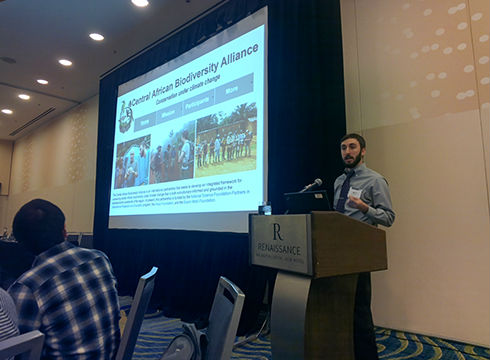
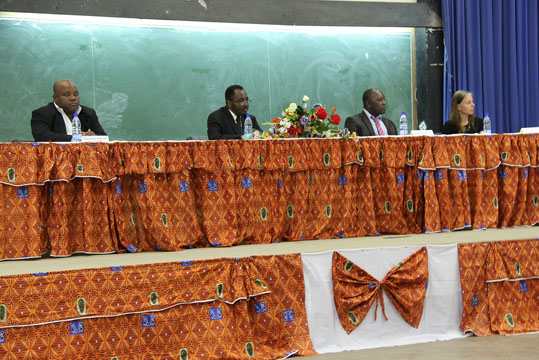
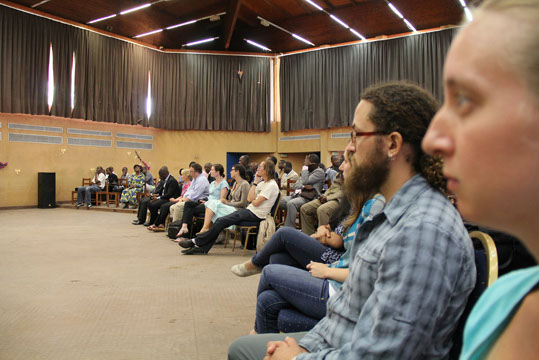
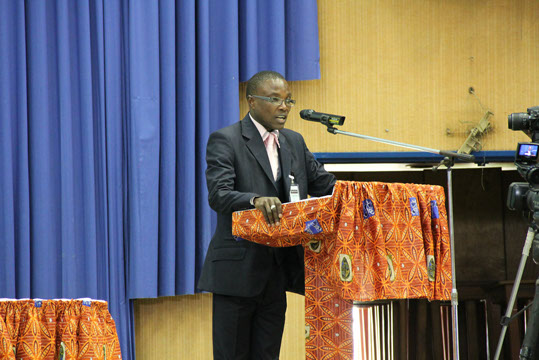
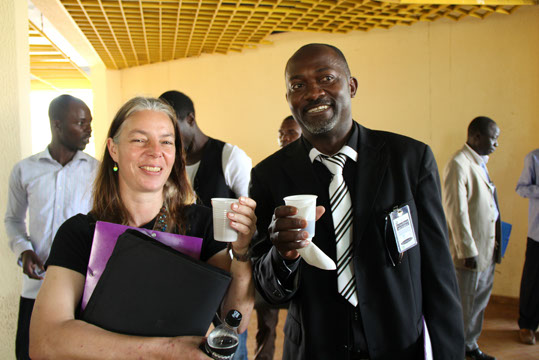
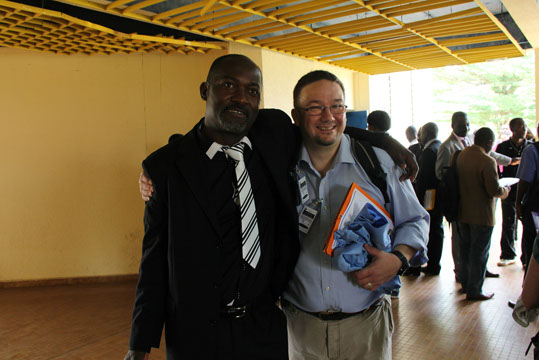
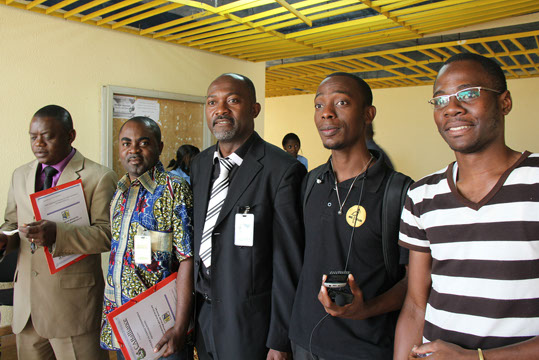
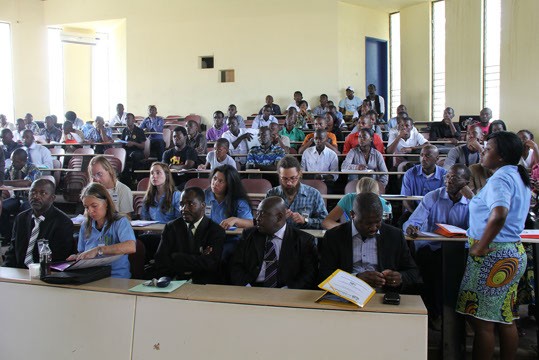
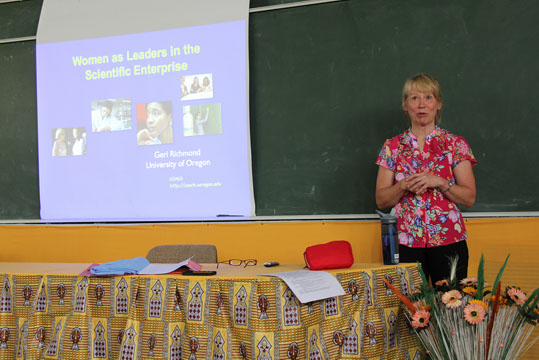
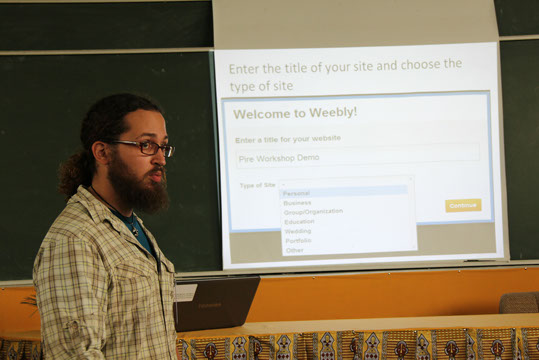
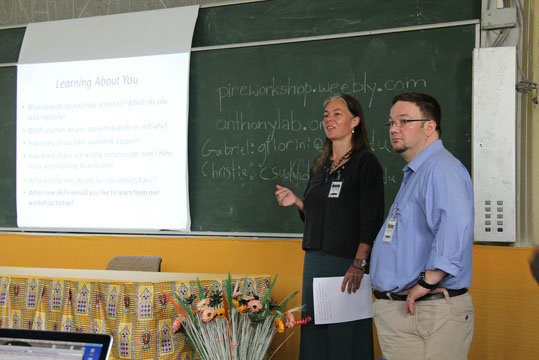
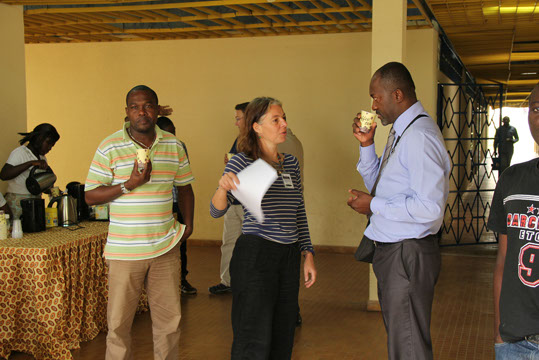
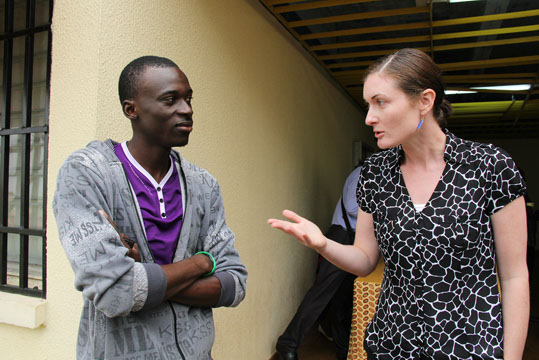
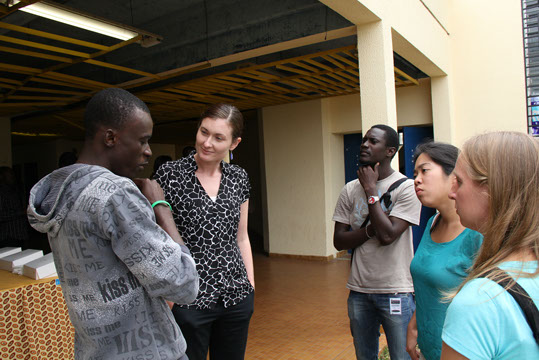
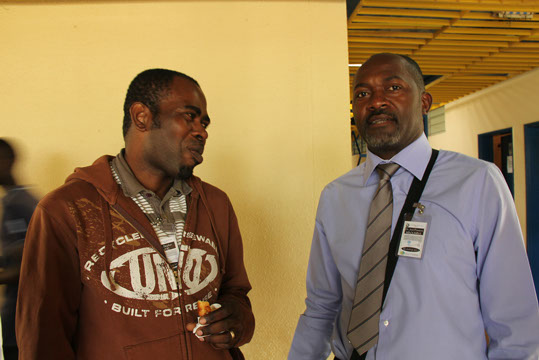
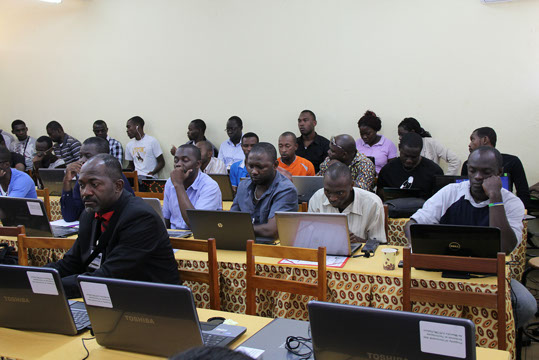
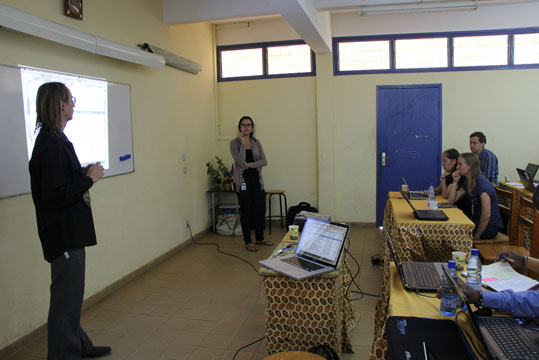
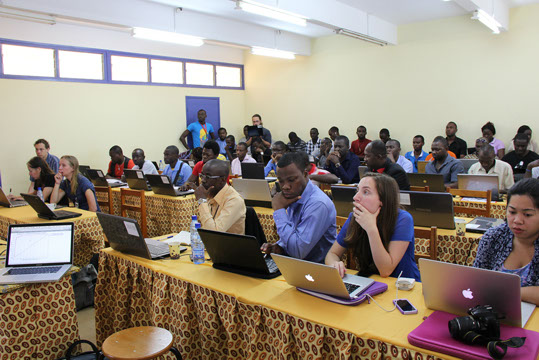
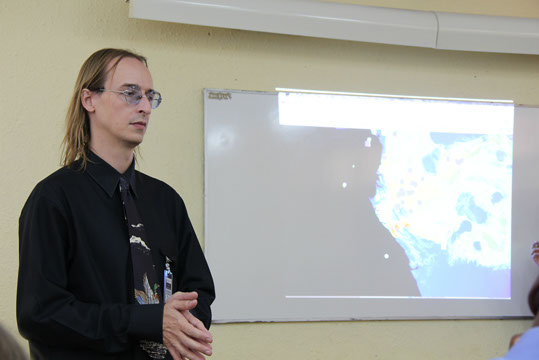
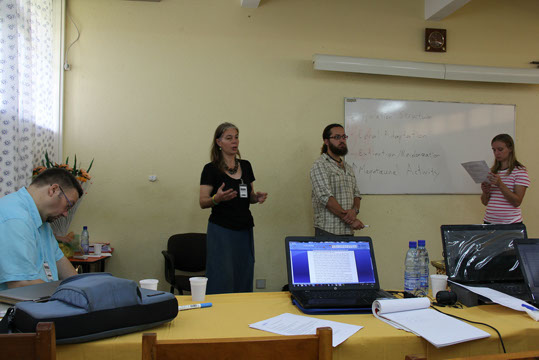
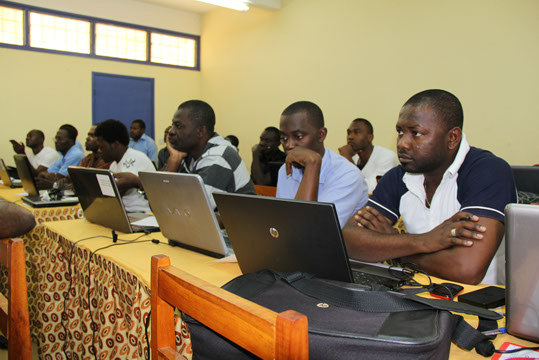
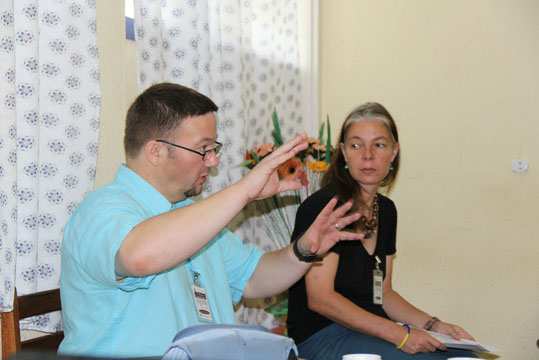
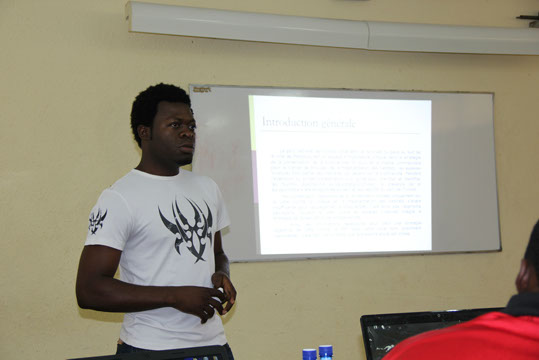
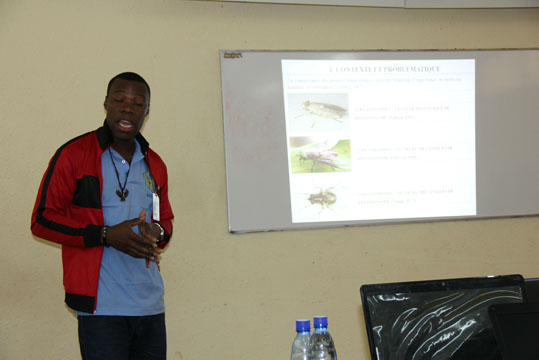
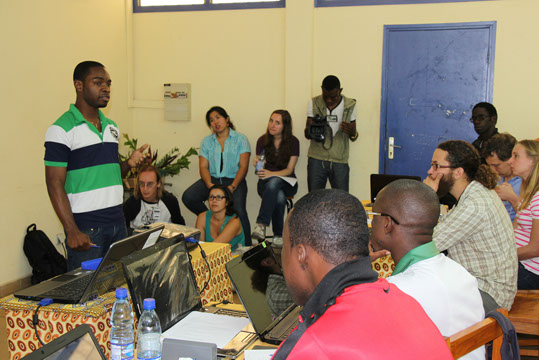
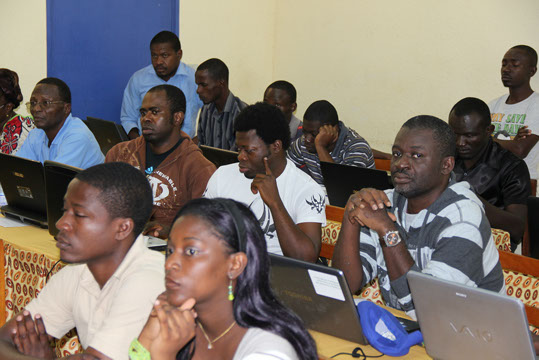
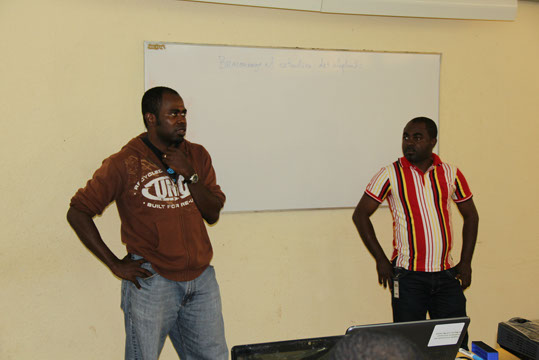
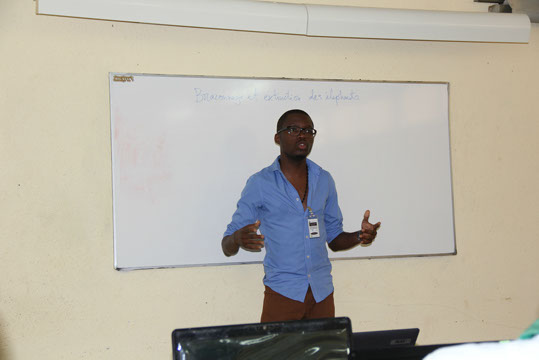
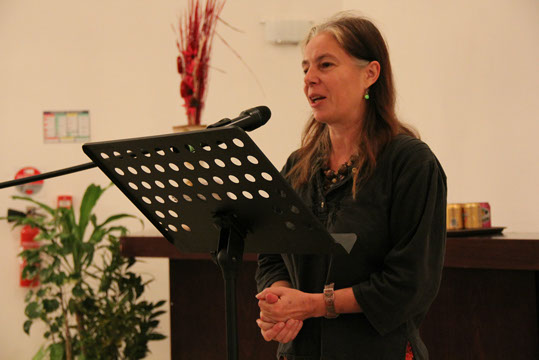
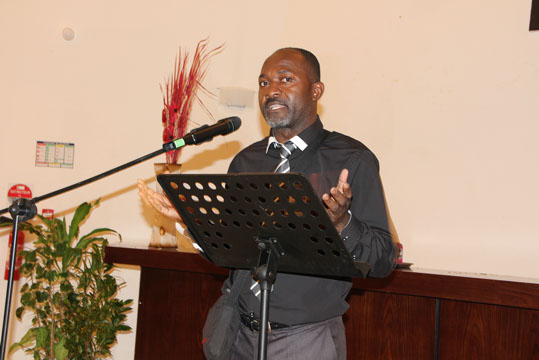
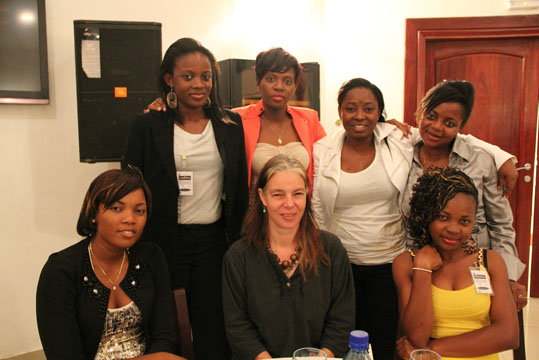
PIRE PI Meeting 2014 - Matthew Mitchell talking about his experience as a PIRE student
Professional Development Workshop, USTM, Gabon, July 2013
Professional Development Workshop, USTM, Gabon, July 2013
Professional Development Workshop, USTM, Gabon, July 2013
Professional Development Workshop, USTM, Gabon, July 2013
Professional Development Workshop, USTM, Gabon, July 2013
Professional Development Workshop, USTM, Gabon, July 2013
Professional Development Workshop, USTM, Gabon, July 2013
Professional Development Workshop, USTM, Gabon, July 2013
Professional Development Workshop, USTM, Gabon, July 2013
Professional Development Workshop, USTM, Gabon, July 2013
Professional Development Workshop, USTM, Gabon, July 2013
Professional Development Workshop, USTM, Gabon, July 2013
Professional Development Workshop, USTM, Gabon, July 2013
Professional Development Workshop, USTM, Gabon, July 2013
Professional Development Workshop, USTM, Gabon, July 2013
Professional Development Workshop, USTM, Gabon, July 2013
Professional Development Workshop, USTM, Gabon, July 2013
Professional Development Workshop, USTM, Gabon, July 2013
Professional Development Workshop, USTM, Gabon, July 2013
Professional Development Workshop, USTM, Gabon, July 2013
Professional Development Workshop, USTM, Gabon, July 2013
Professional Development Workshop, USTM, Gabon, July 2013
Professional Development Workshop, USTM, Gabon, July 2013
Professional Development Workshop, USTM, Gabon, July 2013
Professional Development Workshop, USTM, Gabon, July 2013
Professional Development Workshop, USTM, Gabon, July 2013
Professional Development Workshop, USTM, Gabon, July 2013
Professional Development Workshop, USTM, Gabon, July 2013
Professional Development Workshop, USTM, Gabon, July 2013
Professional Development Workshop, USTM, Gabon, July 2013
<
>

Figure 1. Locations where
training activities will take place.
